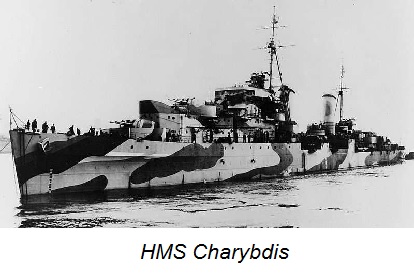
WHAT DID YOU DO IN THE WAR, DAD? (1)
"I suppose my war service began in 1938 following a
government appeal for civilians to serve as Local Defence Volunteers;
this organisation later became the Home Guard. We wore armlets and army boots
and marched about with ancient rifles. Our company consisted of veterans from
the Great War and teenage boys. We had experience of some air raids on the dock
area of Manchester – but nothing like the bombing of Liverpool, of course.
Unexpectedly, recruiting for the police service, nationally, began in February, 1941, and I was keen to join as my father had retired as a Detective Chief Inspector in 1936. One hundred young men joined Manchester City Police to face the expected bombing and my very first night duty was the 1st June blitz of Manchester. I was quite close to a fire bomb which landed in Market Street and sadly my new uniform was covered in oil.
In August 1942 the Police were de-reserved and I joined the Royal Navy, based at Devonport. There I joined a modern anti-aircraft cruiser named Charybdis. We covered Atlantic convoys from Nova Scotia (Canada) to Gibraltar: up to 30 merchant ships escorted by 3 or 4 Navy ships. We met with air and submarine attacks but suffered no casualties. Charybdis was also one of 3 cruisers which supported 7 aircraft carriers at the army landings at Salerno, south of Naples in Italy. Scores of ‘planes and their crews were lost but we had no casualties.
 Charybdis was ordered back to Plymouth. En route I had
qualified as an Able Seaman and was the only lower-deck rating to leave the ship
and to go into RN Barracks, Devonport for a training course. Following that I
was sent on a week’s leave. I was at home in Manchester, when the nine o’clock
radio news announced that HMS Charybdis and an accompanying destroyer had been
sunk in the English Channel – only four days after I had left her. 450 men were
lost.
Charybdis was ordered back to Plymouth. En route I had
qualified as an Able Seaman and was the only lower-deck rating to leave the ship
and to go into RN Barracks, Devonport for a training course. Following that I
was sent on a week’s leave. I was at home in Manchester, when the nine o’clock
radio news announced that HMS Charybdis and an accompanying destroyer had been
sunk in the English Channel – only four days after I had left her. 450 men were
lost.
After training I was drafted to HMS Nile and sailed in a huge troopship to Port Said, Egypt. I was then drafted to a post at Port Tewfik, near Suez and on the Canal. There I remained for almost two years. My duties concerned the movement of personnel, both men and women, and I was forever on and off ships, assisting in this task.
In January 1946 the Suez unit closed and I was drafted on to Malta, to HMS St Angelo in Valetta, a major RN base, again coping with naval personnel and ships.
In July my demobilisation came through. Along with hundreds of others I was sent to Marseilles; travelled by train to Calais and eventually arrived back in Plymouth to be demobbed. I returned to Manchester City Police in January 1947."
Allan Clarke
Some links to the history of HMS Charybdis